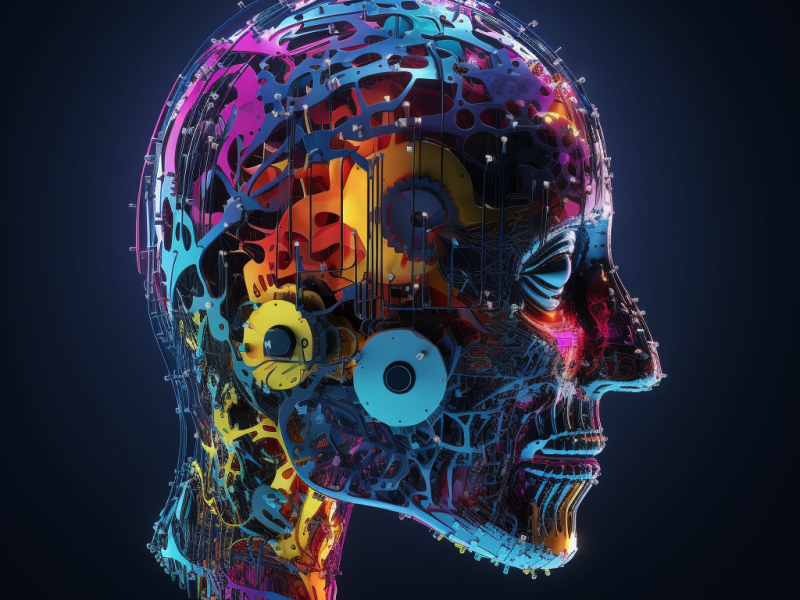In the rapidly evolving world of artificial intelligence (AI) and advanced technologies, it is crucial to ensure that these powerful tools are developed and used in an ethical and responsible manner. This blog post will delve into the key aspects of Ethical AI and Responsible Tech, providing insights into the principles, challenges, and best practices that shape this critical field.
Principles of Ethical AI
At the heart of Ethical AI lie a set of guiding principles that aim to steer the development and deployment of AI systems in a manner that benefits society as a whole. These principles include beneficence, non-maleficence, autonomy, justice, and explicability. By adhering to these principles, we can create AI systems that align with human values and contribute positively to society.
Beneficence emphasizes that AI should be designed to benefit humanity and promote well-being. Non-maleficence ensures that AI does not cause harm or is used for malicious purposes. Autonomy respects human autonomy and allows for informed decision-making. Justice promotes fairness, lack of bias, and equality. Explicability fosters trust and accountability by making AI systems transparent and explainable.
Bias and Fairness in AI Systems
One of the primary challenges in Ethical AI is addressing bias and ensuring fairness in AI systems. AI algorithms can inadvertently perpetuate or amplify biases present in the data they are trained on, leading to discriminatory outcomes. To mitigate this issue, it is essential to carefully curate and preprocess training data, implement fairness metrics and constraints during model development, regularly audit and test AI systems for biases, and foster diversity and inclusivity in AI development teams.
Bias in AI can manifest in various forms, such as gender bias, racial bias, or age bias. These biases can lead to unfair treatment, discrimination, and the reinforcement of societal inequalities. By actively combating bias and promoting fairness, we can create AI systems that treat all individuals equitably and contribute to a more just society.
Transparency and Explainability
Transparency and explainability are key components of Ethical AI. As AI systems become more complex and influential in decision-making processes, it is crucial to ensure that their inner workings are transparent and understandable to stakeholders. This involves developing interpretable AI models that provide clear explanations for their outputs, documenting the data, algorithms, and processes used in AI development, engaging in open communication with users and the public about AI systems’ capabilities and limitations, and providing avenues for feedback and redress when AI decisions are questioned.
Transparency builds trust between AI systems and the individuals affected by their decisions. It enables informed decision-making and allows for the identification and correction of potential biases or errors. By prioritizing transparency and explainability, we can foster a more responsible and accountable AI ecosystem.
Privacy and Data Protection
AI systems often rely on vast amounts of personal data to function effectively. Ensuring the privacy and protection of this data is a critical aspect of Responsible Tech. Organizations must adhere to data protection regulations and best practices, such as the General Data Protection Regulation (GDPR), implement robust data security measures to prevent unauthorized access and breaches, obtain informed consent from individuals before collecting and processing their data, and provide individuals with control over their data and the ability to exercise their rights, such as the right to be forgotten.
Privacy and data protection are fundamental human rights in the digital age. By prioritizing these aspects, we can build trust with individuals and ensure that their personal information is handled responsibly and ethically.
Accountability and Governance
Establishing clear accountability and governance frameworks is essential for ensuring the responsible development and deployment of AI systems. This involves defining roles and responsibilities for AI developers, deployers, and users, establishing oversight mechanisms and ethical review boards to monitor AI systems, developing industry standards and best practices for Ethical AI, and encouraging collaboration between stakeholders, including policymakers, researchers, and civil society organizations.
Effective governance structures enable the proactive identification and mitigation of risks associated with AI systems. They ensure that AI is developed and used within ethical boundaries, aligning with societal values and expectations. Accountability measures hold organizations and individuals responsible for the actions and decisions of AI systems, promoting trust and transparency.
Conclusion
Ethical AI and Responsible Tech are not optional considerations—they are imperative for the sustainable and beneficial development of AI technologies. By embracing the principles of Ethical AI, addressing bias and fairness, promoting transparency and explainability, prioritizing privacy and data protection, and establishing robust accountability and governance frameworks, we can harness the transformative potential of AI while safeguarding the well-being of individuals and society as a whole.
As we navigate the landscape of Ethical AI and Responsible Tech, ongoing dialogue, collaboration, and a commitment to ethical principles will be key to shaping a future in which AI serves as a powerful tool for the betterment of humanity. It is our collective responsibility to ensure that the development and deployment of AI systems are guided by moral principles and a strong ethical compass.
Let us embrace the challenges and opportunities presented by Ethical AI and Responsible Tech, and work together to create a future where AI technologies are a force for good, promoting fairness, transparency, privacy, and accountability. By doing so, we can unlock the full potential of AI while building a society that values and protects the rights and well-being of all individuals. Ready to embrace Ethical AI and Responsible Tech in your organization? Reach out to us today. Let’s collaborate on building a more ethical and responsible AI ecosystem.

